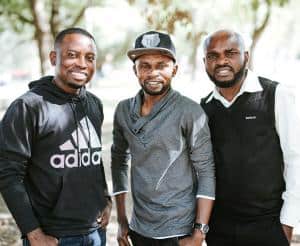The first time I celebrated World Refugee Day was June 20, 1997, along with thousands of others in Nyarugusu Refugee Camp, Kigoma, Tanzania. A child at that time, I did not really know what it was for or why people celebrated it. Looking back, I realize that the children’s poems and plays, speeches from the camp community, government leaders, and U.N. officials spread a message of hope and a call to action to the nation and the globe. Since the world’s response to this humanitarian crisis had been effectively crippled, this day helps to create awareness. Telling my own story is part of raising awareness – and that’s why I’m here, writing.
Over the course of my life, I’ve lived in several places and countries – so I didn’t expect to experience anything particularly new or different from what a refugee or an immigrant normally feels upon arrival in a foreign country. But nothing could have prepared me for my experience arriving in Memphis.
It was completely different than I imagined. I was welcomed into a friendly environment that continues to have a huge impact on my life to this day. As a Christian, I was afraid of the challenges that I could face and the impact of living in a secular country could have on my faith. But World Relief, the resettlement agency through which I was resettled in the U.S., connected me with volunteers and other community members who share the same faith. These people opened their arms and homes to me, inviting me to share meals and stories with them. It was a huge contrast: Before being invited to the U.S., I lived in South Africa for about 4 years, and during that time, I never entered a South African friend’s home.
I will confess, I was not greatly impressed by the city or buildings when I first arrived in Memphis. What did impress me was how people welcomed me and the love they showed me. I never felt lost on my first days in the U.S., thanks to the opportunity World Relief gave me to connect and hang out with new friends. They made my transition very smooth, and I am grateful for that.
That said, not everyone has an easy and smooth transition when they move to a new country. The majority of the refugees in my current community in Memphis came from refugee camps, where they lived for an average of about two decades. These camps are like living in an open-air prison. Not only are the medical system, nutrition and education poor, but people there are kept in the dark about almost everything. They have no idea what is going on around the world.
Arriving in the U.S. after spending many years in the refugee camp is a shock. The amount of new information and the pace at which you have to learn it is overwhelming. Some refugees have limited knowledge of the new language and are unable to navigate the public system on their own after the orientation services provided by their resettlement agency end.
Having been once in their position of vulnerability and confusion, I see it as my duty as a human being and a member of their new community to care for and support them as much as I can. It is a means of giving back. It is a means of serving my community. It is a form of showing love. It is a form of showing there is always a place they can run to for help – a hard lesson to learn after living in a refugee camp.
This is what all of us are called to and what all of us should be doing. If you’ve grown up outside a refugee camp or if you’ve lived a comparatively comfortable life in America, it can be hard to imagine how a small gesture of kindness and love can eternally impact the many broken lives out there – but it impacted mine. In fact, gestures like these are one of the reasons I decided to buy a house in Binghampton, the most diverse community in Memphis. I believe that the first step of commitment in serving a community is to live within the community, so that we can strive and face challenges together.
With the world in constant crisis – wars, natural disasters, persecution, famine and the mass migration of refugees resulting from these – it is inhuman to cross our arms and say, “This is not my problem.” If it is not your problem, whose problem is it? It is the responsibility of all of us to care for and offer our support to those who are suffering around the world. Not one refugee desired to be in the situation they are now. They simply wanted to live and be free – just as Americans do.
Twenty-two years after that first celebration in the camp, World Refugee Day remains very important to me. Just like the children in the camp singing their songs and the U.N. officials making their speeches, I raise my voice to tell the world about the refugee crisis and demand a collective response. There will never be a better time to act than now.

Basuze Gulain Madogo was born in the Democratic Republic of Congo, and first fled with his family for refuge in 1996. He was invited to be permanently resettled in the United States in 2014. Since being welcomed to Memphis, two brothers have joined him here, and two additional brothers have been resettled in Massachusetts and Wisconsin. He was hired by World Relief Memphis as a Resettlement Specialist in 2016, graduated with an Associate Degree from Southwest Tennessee Community College in 2017, and is studying Accounting at the University of Memphis. Join Basuze and World Relief by supporting our work of welcome. Visit HERE to learn more.
